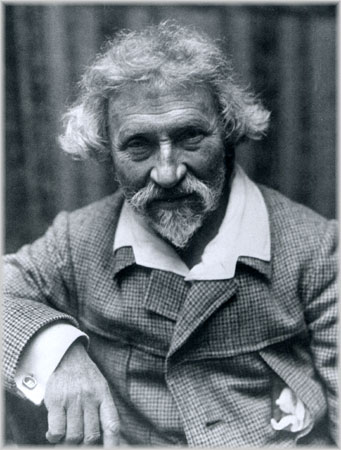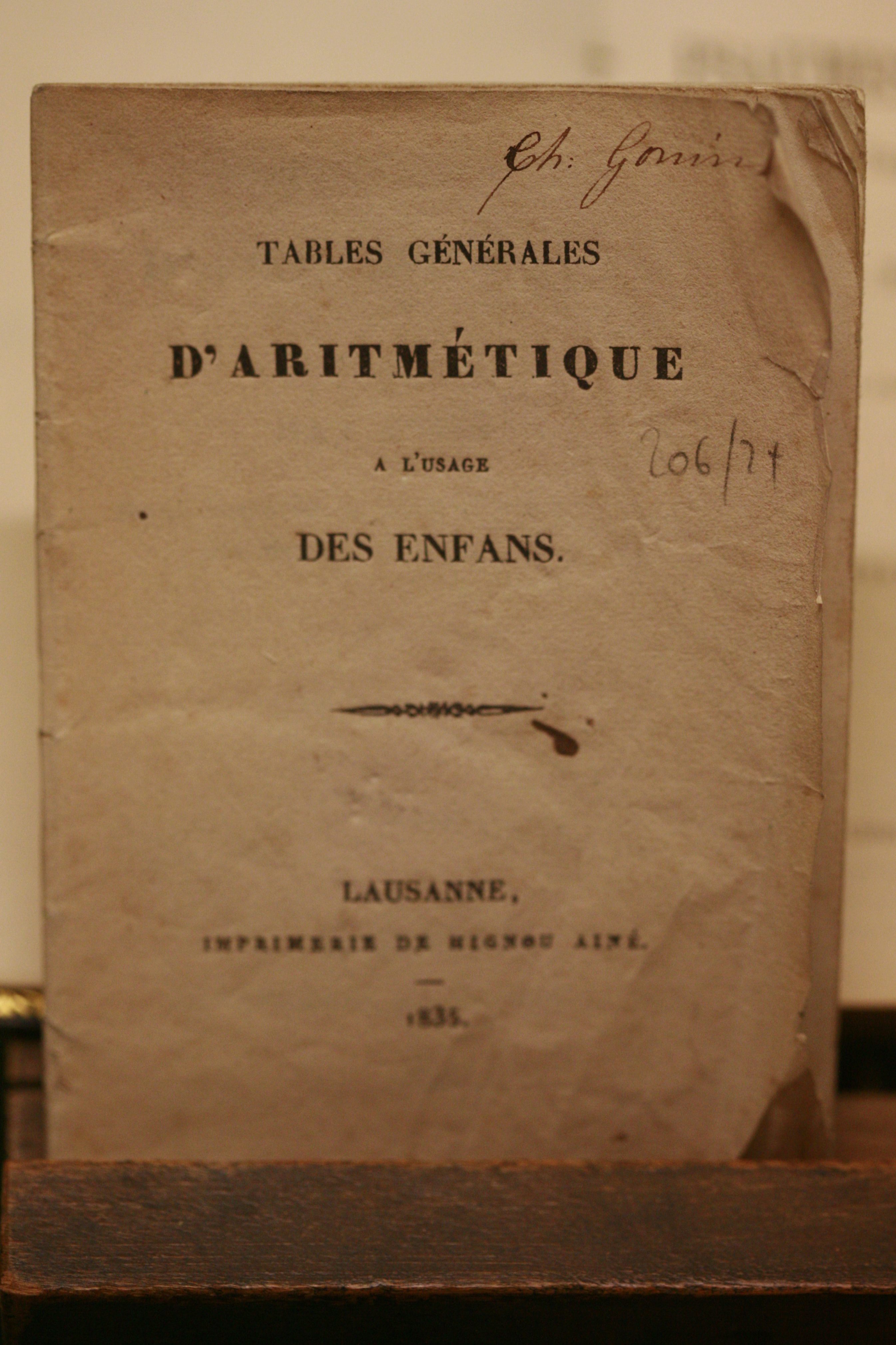|
Aleksey Pisemsky
Aleksey Feofilaktovich Pisemsky (russian: Алексе́й Феофила́ктович Пи́семский) () was a Russian novelist and dramatist who was regarded as an equal of Ivan Turgenev and Fyodor Dostoyevsky in the late 1850s, but whose reputation suffered a spectacular decline after his fall-out with ''Sovremennik'' magazine in the early 1860s. A realistic playwright, along with Aleksandr Ostrovsky he was responsible for the first dramatization of ordinary people in the history of Russian theatre.Banham (1998, 861). "Pisemsky's great narrative gift and exceptionally strong grip on reality make him one of the best Russian novelists," according to D.S. Mirsky. Pisemsky's first novel '' Boyarschina'' (1847, published 1858) was originally forbidden for its unflattering description of the Russian nobility. His principal novels are ''The Simpleton'' (1850), ''One Thousand Souls'' (1858), which is considered his best work of the kind, and ''Troubled Seas'', which gives a pic ... [...More Info...] [...Related Items...] OR: [Wikipedia] [Google] [Baidu] |
Ilya Repin
Ilya Yefimovich Repin (russian: Илья Ефимович Репин, translit=Il'ya Yefimovich Repin, p=ˈrʲepʲɪn); fi, Ilja Jefimovitš Repin ( – 29 September 1930) was a Russian painter, born in what is now Ukraine. He became one of the most renowned artists in Russia during the 19th century. His major works include ''Barge Haulers on the Volga'' (1873), '' Religious Procession in Kursk Province'' (1880–1883), ''Ivan the Terrible and His Son Ivan'' (1885); and ''Reply of the Zaporozhian Cossacks'' (1880–1891). He is also known for the revealing portraits he made of the leading literary and artistic figures of his time, including Mikhail Glinka, Modest Mussorgsky, Pavel Tretyakov and especially Leo Tolstoy, with whom he had a long friendship. Repin was born in Chuguyev, in Kharkov Governorate of the Russian Empire. His father had served in an Uhlan Regiment in the Russian army, and then sold horses. Repin began painting icons at age sixteen. He failed at his first ... [...More Info...] [...Related Items...] OR: [Wikipedia] [Google] [Baidu] |
Unzha River
The Unzha (russian: Унжа) is a river in the Vologda Oblast and Kostroma Oblast in Russia, a tributary of the Volga. It is long, and its Drainage basin, basin covers .«Река Унжа» Russian State Water Registry The Unzha begins at the Confluence (geography), confluence of the rivers Kema (Unzha), Kema and the Lundonga. It flows into the Unzhensky Cove of the Gorky Reservoir. The Unzha freezes up between October and December and stays under the ice until April or May. The main tributaries are the Viga (river), Viga, Neya (river), Neya, and the Mezha (Unzha), Mezha. The towns of Kologriv, Manturovo and Makaryev are along the Unzha River. References Rivers of Vologda Oblast Rivers of Kostroma Oblast {{Russia-river-stub ...[...More Info...] [...Related Items...] OR: [Wikipedia] [Google] [Baidu] |
Walter Scott
Sir Walter Scott, 1st Baronet (15 August 1771 – 21 September 1832), was a Scottish novelist, poet, playwright and historian. Many of his works remain classics of European and Scottish literature, notably the novels ''Ivanhoe'', ''Rob Roy (novel), Rob Roy'', ''Waverley (novel), Waverley'', ''Old Mortality'', ''The Heart of Mid-Lothian'' and ''The Bride of Lammermoor'', and the narrative poems ''The Lady of the Lake (poem), The Lady of the Lake'' and ''Marmion (poem), Marmion''. He had a major impact on European and American literature. As an advocate, judge and legal administrator by profession, he combined writing and editing with daily work as Clerk of Session and Sheriff court, Sheriff-Depute of Selkirkshire. He was prominent in Edinburgh's Tory (political faction), Tory establishment, active in the Royal Highland and Agricultural Society of Scotland, Highland Society, long a president of the Royal Society of Edinburgh (1820–1832), and a vice president of the Society o ... [...More Info...] [...Related Items...] OR: [Wikipedia] [Google] [Baidu] |
Latin Language
Latin (, or , ) is a classical language belonging to the Italic languages, Italic branch of the Indo-European languages. Latin was originally a dialect spoken in the lower Tiber area (then known as Latium) around present-day Rome, but through the power of the Roman Republic it became the dominant language in the Italy (geographical region), Italian region and subsequently throughout the Roman Empire. Even after the Fall of the Western Roman Empire, fall of Western Rome, Latin remained the common language of international communication, science, scholarship and academia in Europe until well into the 18th century, when other regional vernaculars (including its own descendants, the Romance languages) supplanted it in common academic and political usage, and it eventually became a dead language in the modern linguistic definition. Latin is a fusional language, highly inflected language, with three distinct grammatical gender, genders (masculine, feminine, and neuter), six or seven ... [...More Info...] [...Related Items...] OR: [Wikipedia] [Google] [Baidu] |
Russian Language
Russian (russian: русский язык, russkij jazyk, link=no, ) is an East Slavic languages, East Slavic language mainly spoken in Russia. It is the First language, native language of the Russians, and belongs to the Indo-European languages, Indo-European language family. It is one of four living East Slavic languages, and is also a part of the larger Balto-Slavic languages. Besides Russia itself, Russian is an official language in Belarus, Kazakhstan, and Kyrgyzstan, and is used widely as a lingua franca throughout Ukraine, the Caucasus, Central Asia, and to some extent in the Baltic states. It was the De facto#National languages, ''de facto'' language of the former Soviet Union,1977 Soviet Constitution, Constitution and Fundamental Law of the Union of Soviet Socialist Republics, 1977: Section II, Chapter 6, Article 36 and continues to be used in public life with varying proficiency in all of the post-Soviet states. Russian has over 258 million total speakers worldwide. ... [...More Info...] [...Related Items...] OR: [Wikipedia] [Google] [Baidu] |
Arithmetics
Arithmetic () is an elementary part of mathematics that consists of the study of the properties of the traditional operations on numbers—addition, subtraction, multiplication, division, exponentiation, and extraction of roots. In the 19th century, Italian mathematician Giuseppe Peano formalized arithmetic with his Peano axioms, which are highly important to the field of mathematical logic today. History The prehistory of arithmetic is limited to a small number of artifacts, which may indicate the conception of addition and subtraction, the best-known being the Ishango bone from central Africa, dating from somewhere between 20,000 and 18,000 BC, although its interpretation is disputed. The earliest written records indicate the Egyptians and Babylonians used all the elementary arithmetic operations: addition, subtraction, multiplication, and division, as early as 2000 BC. These artifacts do not always reveal the specific process used for solving problems, but the ... [...More Info...] [...Related Items...] OR: [Wikipedia] [Google] [Baidu] |
Defrocking
Defrocking, unfrocking, degradation, or laicization of clergy is the removal of their rights to exercise the functions of the ordained ministry. It may be grounded on criminal convictions, disciplinary problems, or disagreements over doctrine or dogma, but may also be done at their request for personal reasons, such as running for civil office, taking over a family business, declining health or old age, desire to marry against the rules for clergy in a particular church, or an unresolved dispute. The form of the procedure varies according to the Christian denomination concerned. The words "defrocking" or "unfrocking" refers to the ritual removal of the frock-like vestments of clergy and ministers. These rituals are generally no longer practiced and were sometimes separate from dismissals from ordained ministry, leading some to contend that modern use of "defrocking" is inaccurate. However, others maintain "defrocking" as a common synonym for laicization, one particularly popular in ... [...More Info...] [...Related Items...] OR: [Wikipedia] [Google] [Baidu] |
Vetluga
Vetluga (russian: Ветлу́га) is a town and the administrative center of Vetluzhsky District in Nizhny Novgorod Oblast, Russia, located on the right bank of the Vetluga River. Population: History It was founded in 1636 and granted town status in 1778. Administrative and municipal status Within the framework of administrative divisions, Vetluga serves as the administrative center of Vetluzhsky District.Order #3-od As an administrative division, it is incorporated within Vetluzhsky District as the town of district significance of Vetluga. As a municipal division, the town of district significance of Vetluga is incorporated within Vetluzhsky Municipal District as Vetluga Urban Settlement.Law #109-Z Notable residents *Aleksey Pisemsky (1821–1881), novelist and dramatist, lived his first ten years at Vetluga *Vasily Rozanov (1856–1919), writer and philosopher, born in Vetluga *Viktor Rozov Viktor Sergeyevich Rozov (in russian: Виктор Сергеевич Розо ... [...More Info...] [...Related Items...] OR: [Wikipedia] [Google] [Baidu] |
Masons (novel)
''Masons'' (russian: Масоны) is a novel by Alexey Pisemsky started in the late 1878 and first published in 1880 in ''Ogonyok'' magazine (Nos. 1–6, 8-43). Pisemsky who regarded the Freemasonry Freemasonry or Masonry refers to fraternal organisations that trace their origins to the local guilds of stonemasons that, from the end of the 13th century, regulated the qualifications of stonemasons and their interaction with authorities ... as a progressive force in Russia of the 1820s and 1830s based the narrative upon his personal childhood memories of the people he knew (among them his uncle Yury Bartenev) who belonged to the lodge. References External links''Масоны'' The original Russian text 1880 novels Novels by Aleksey Pisemsky Novels set in 19th-century Russia {{1880s-novel-stub ... [...More Info...] [...Related Items...] OR: [Wikipedia] [Google] [Baidu] |
Freemasonry
Freemasonry or Masonry refers to fraternal organisations that trace their origins to the local guilds of stonemasons that, from the end of the 13th century, regulated the qualifications of stonemasons and their interaction with authorities and clients. Modern Freemasonry broadly consists of two main recognition groups: * Regular Freemasonry insists that a volume of scripture be open in a working lodge, that every member profess belief in a Supreme Being, that no women be admitted, and that the discussion of religion and politics be banned. * Continental Freemasonry consists of the jurisdictions that have removed some, or all, of these restrictions. The basic, local organisational unit of Freemasonry is the Lodge. These private Lodges are usually supervised at the regional level (usually coterminous with a state, province, or national border) by a Grand Lodge or Grand Orient. There is no international, worldwide Grand Lodge that supervises all of Freemasonry; each Grand Lod ... [...More Info...] [...Related Items...] OR: [Wikipedia] [Google] [Baidu] |
Sleepwalking
Sleepwalking, also known as somnambulism or noctambulism, is a phenomenon of combined sleep and wakefulness. It is classified as a sleep disorder belonging to the parasomnia family. It occurs during slow wave stage of sleep, in a state of low consciousness, with performance of activities that are usually performed during a state of full consciousness. These activities can be as benign as talking, sitting up in bed, walking to a bathroom, consuming food, and cleaning, or as hazardous as cooking, driving a motor vehicle, violent gestures and grabbing at hallucinated objects.Swanson, Jenifer, ed. "Sleepwalking". ''Sleep Disorders Sourcebook''. MI: Omnigraphics, 1999. 249–254, 351–352. Although sleepwalking cases generally consist of simple, repeated behaviors, there are occasionally reports of people performing complex behaviors while asleep, although their legitimacy is often disputed. Sleepwalkers often have little or no memory of the incident, as their consciousness has ... [...More Info...] [...Related Items...] OR: [Wikipedia] [Google] [Baidu] |





